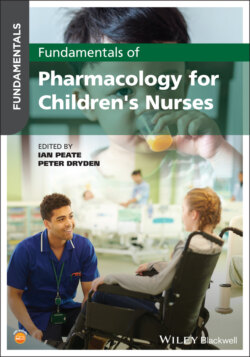Читать книгу Fundamentals of Pharmacology for Children's Nurses - Группа авторов - Страница 31
Medicine Management
ОглавлениеMedicine management involves the safe storage, management and administration of medications, which includes following local and national policies and guidelines for the safe administration of medication. Monitoring the effectiveness of any medication given, as well as understanding the side effects and contraindications, and being able to explain these to CYP and their family is part of the advancing role in healthcare. The ‘Professional Guidance on the Administration of Medicines in Healthcare Settings’ (RPS and RCN, 2019) outlines professional accountability and covers these aspects in more detail. This document is essential reading for all healthcare staff involved in medicine management and administration. Healthcare students and healthcare professionals are involved in medicine management in a variety of settings and should refer to the Standards of Proficiency for Pre‐registration Nursing Education for Guidance (NMC, 2018b) as well ensuring they are familiar with and abiding to local policy and procedure.
The Standards of Proficiency for Nursing Associates along with the Standards for Pre‐registration Nursing Associate Programmes (NMC, 2018c, 2018d) provide details regarding the preparation of nursing associates and the proficiencies that have to be met prior to the nursing associate’s name being entered on the professional register. The nursing associate (as is the case for the registered nurse) must be able, at the point of registration, to demonstrate and apply knowledge of pharmacology when delivering care. There is also a need to understand the principles of safe and effective administration and optimisation of medicines. Importantly, this must be done in accordance with local and national policies. Procedural competencies (very much related to local policy) must be demonstrated concerning the safe administration of medicines.
